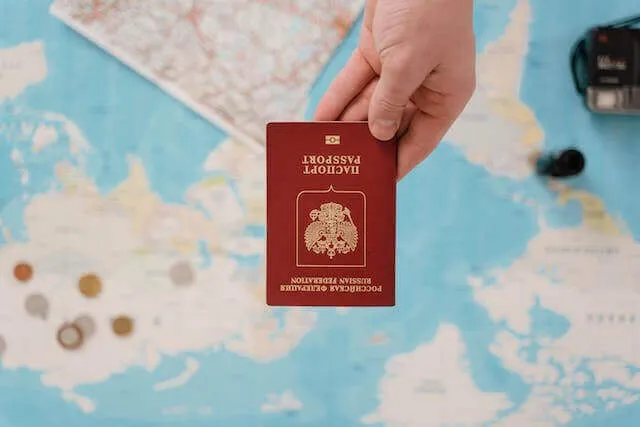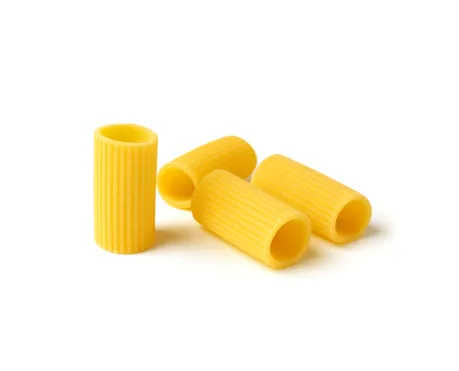 Adjectives
Adjectives
Lesson eighteen


Lesson seventeen
When you start speaking Italian, one of the first questions you are likely to hear from native speakers is about your background: Where are you from? or What are your origins? This is a common way for Italians to start a conversation and show interest in getting to know you. To answer these questions correctly, you need to be familiar with the vocabulary for countries, cities, and nationalities. In this guide, we will provide you with all the essential words and phrases, as well as examples of how to use them naturally in conversation. By the end of this section, you’ll feel confident introducing yourself and learning about others’ origins.
The most common and straightforward way to ask someone where they are from in Italian is:
Da dove vieni?
This is an informal question suitable for peers, friends, or people of a similar age. However, in Italian culture, showing respect is important, especially when speaking to older people, teachers, or strangers. In such cases, you should use the formal version:
Da dove viene?
Both questions expect a similar answer. You can respond by starting with Vengo da..., which means I come from…, followed by the name of the country with the appropriate definite article. This structure is polite and widely understood.
Da dove vieni? Vengo dalla Germania, e tu?
Where are you from? I’m from Germany, and you?
Io vengo dall'Italia.
I’m from Italy.
It’s important to note that in Italian, the preposition da often combines with the definite article, depending on the country’s gender and number. For example:
Dalla Svizzera
From Switzerland
Dagli Stati Uniti
From the United States
There is also an alternative way to ask the same question, which is slightly more direct and conversational. You can say:
Di dove sei? (informal)
Di dov'è? (formal)
When someone asks this question, you can answer using the verb sono (I am), followed by the nationality adjective. This is a simpler, more concise way to identify your origin without mentioning the country explicitly. For example:
Di dove sei? Sono francese, e tu?
Where are you from? I’m French, and you?
Io sono inglese.
I’m English.
Di dove? Sono tedesco.
Where from? I’m German.
Using nationality adjectives is especially useful when you want to keep your response short, or when you are in a social situation where the conversation moves quickly. This is a common practice in Italy, especially among young people meeting for the first time.
In Italian, adjectives that describe nationalities follow the standard rules for adjective agreement. This means they change depending on the gender (masculine/feminine) and number (singular/plural) of the noun they describe. Learning these forms will allow you to describe yourself and others accurately in any conversation.
Francese – French
Forms: francese (masculine/feminine singular), francesi (plural)
Example: Lei è una ragazza francese.
Translation: She is a French woman.
Tedesco – German
Forms: tedesco (masculine singular), tedesca (feminine singular), tedeschi (masculine plural), tedesche (feminine
plural)
Example: Lui è tedesco.
Translation: He is German.
If you haven’t yet mastered how to conjugate adjectives in Italian, it is highly recommended to review that topic. Proper adjective agreement will make your speech sound more natural and fluent.
Below, you’ll find a helpful chart that lists some of the most commonly referenced countries in the world, along with their corresponding nationality adjectives. Each word is clickable so you can listen to the correct pronunciation, which is an excellent way to improve your speaking and listening skills. By practicing these words, you will be able to confidently introduce yourself and ask others about their origins in a wide variety of social settings.
| Original | Translation |
|---|---|
|
Italia - italiano: |
Italy - Italian |
|
Francia - francese: |
France - French |
|
Germania - tedesco: |
Germany - German |
|
Spagna - spagnolo: |
Spain - Spanish |
|
Russia - russo: |
Russia - Russian |
|
Inghilterra - inglese: |
England - English |
|
Regno Unito - britannico: |
United Kingdom - British |
|
Paesi Bassi/Olanda - olandese: |
Netherlands - Dutch |
|
Turchia - turco: |
Turkey - Turkish |
|
Albania - albanese: |
Albania - Albanian |
|
Austria - austriaco: |
Austria - Austrian |
|
Belgio - belga: |
Belgium - Belgian |
|
Bosnia-Erzegovina - bosniaco: |
Bosnia and Herzegovina - Bosnian |
|
Bulgaria - bulgaro: |
Bulgaria - Bulgarian |
|
Croazia - croato: |
Croatia - Croatian |
|
Cipro - cipriota: |
Cyprus - Cypriot |
|
Repubblica Ceca - ceco: |
Czech Republic - Czech |
|
Danimarca - danese: |
Denmark - Danish |
|
Estonia - estone: |
Estonia - Estonian |
|
Finlandia - finlandese: |
Finland - Finnish |
|
Grecia - greco: |
Greece - Greek |
|
Ungheria - ungherese: |
Hungary - Hungarian |
|
Islanda - islandese: |
Iceland - Icelandic |
|
Irlanda - irlandese: |
Ireland - Irish |
|
Lettonia - lettone: |
Latvia - Latvian |
|
Lituania - lituano: |
Lithuania - Lithuanian |
|
Malta - maltese: |
Malta - Maltese |
|
Norvegia - norvegese: |
Norway - Norwegian |
|
Polonia - polacco: |
Poland - Polish |
|
Portogallo - portoghese: |
Portugal - Portuguese |
|
Moldavia - moldavo: |
Moldova - Moldovan |
|
Romania - rumeno: |
Romania - Romanian |
|
San Marino - sammarinese: |
San Marino - Sammarinese |
|
Serbia - serbo: |
Serbia - Serbian |
|
Slovacchia - slovacco: |
Slovakia - Slovak |
|
Slovenia - sloveno: |
Slovenia - Slovenian |
|
Svezia - svedese: |
Sweden - Swedish |
|
Svizzera - svizzero: |
Switzerland - Swiss |
|
Ucraina - ucraino: |
Ukraine - Ukrainian |
|
Il Vaticano: |
Vatican City |
| Original | Translation |
|---|---|
|
Gli Stati Uniti - statunitense: |
United States - American |
|
Il Canada - canadese: |
Canada - Canadian |
|
Messico - messicano: |
Mexico - Mexican |
When country names are used alone, they typically require a definite article. Like any other Italian noun, countries have a gender. Use il for masculine countries and la for feminine countries.
L'Italia
Italy
La Germania
Germany
Example:
L'Italia si trova in Europa.
Italy is situated in Europe.
For plural country names, use plural articles.
Gli Stati Uniti
The United States
Example:
Gli Stati Uniti sono un grande paese.
The United States is a large country.
When talking about countries, the preposition in is used.
In Italia
In Italy
In Italia si parla italiano.
In Italy, Italian is spoken.
In Grecia
In Greece
Quest'anno vado in vacanza in Grecia.
This year, I’m going on vacation in Greece.
In Italia
In Italy
Ho vissuto in Italia per due mesi.
I lived in Italy for two months.
Now that you’ve learned the names of countries, let’s look at the languages spoken in those countries. Generally, the name of the language is the same as the masculine form of the nationality adjective.
| Original | Translation |
|---|---|
|
Italiano |
Italian |
|
Inglese |
English |
|
Spagnolo |
Spanish |
|
Francese |
French |
|
Tedesco |
German |
|
Portoghese |
Portuguese |
|
Cinese |
Chinese |
|
Giapponese |
Japanese |
|
Coreano |
Korean |
|
Arabo |
Arabic |
|
Turco |
Turkish |
|
Russo |
Russian |
|
Polacco |
Polish |
|
Svedese |
Swedish |
|
Norvegese |
Norwegian |
|
Danese |
Danish |
|
Thailandese/Tailandese |
Thai |
|
Vietnamita |
Vietnamese |
|
Rumeno |
Romanian |
|
Ungherese |
Hungarian |
In Italian, unlike English, language names are never capitalized unless they appear at the beginning of a sentence.
Antonio parla italiano e inglese.
Antonio speaks Italian and English.
Tu che lingue parli? Io parlo italiano, francese e anche un po' di tedesco.
What languages do you speak? I speak Italian, French, and a bit of German.
Angela parla italiano molto bene.
Angela speaks Italian very well.
Even though the word lingua (language) is feminine, the names of languages are considered masculine in Italian, and they take masculine articles: il, l', or lo.
Il cinese è una lingua difficile.
Chinese is a difficult language.
Ho studiato il francese a scuola.
I studied French at school.
Questo libro è stato tradotto dal tedesco.
This book has been translated from German.
Note that the article is not used with the verb parlare (to speak), as shown in the earlier examples.
Just like in English, when talking about languages, use the preposition in.
In italiano, in tedesco, in francese
In Italian, in German, in French
Come si dice problema in inglese?
How do you say 'problem' in English?
Il libro è scritto in latino.
The book is written in Latin.
Devo tradurre questa frase in italiano.
I have to translate this sentence into Italian.
 Adjectives
Adjectives
Lesson eighteen
 This and That
This and That
Lesson nineteen
 How old are you?
How old are you?
Lesson twenty
 Present progressive
Present progressive
Lesson twenty-one
 Reflexive verbs
Reflexive verbs
Lesson twenty-two
 Possessive
Possessive
Lesson twenty-three